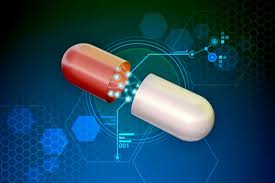
- +86-13363869198
- weimiaohb@126.com

Nov . 20, 2024 00:22 Back to list
cas 57-85-2 testosterone propionate
Testosterone Propionate A Comprehensive Overview
Testosterone propionate is an anabolic steroid derived from the male hormone testosterone. It holds the chemical formula C22H32O3 and is commonly referenced by its CAS number, 57-85-2. This steroid has garnered attention among athletes, bodybuilders, and medical professionals due to its various applications and effects.
Chemical Structure and Properties
Testosterone propionate is the propionic acid ester of testosterone. This modification enhances its absorption rate and decreases the time it stays in the body. The esterification of testosterone allows for a more controlled release into the bloodstream, making it effective for both therapeutic and performance-enhancing purposes. The shorter half-life of testosterone propionate compared to other esters like testosterone enanthate leads to more frequent injections, usually every other day, to maintain stable blood levels.
Medical Applications
In the medical realm, testosterone propionate is utilized in hormone replacement therapy (HRT) for males who suffer from testosterone deficiency. Conditions such as hypogonadism, which can lead to symptoms like fatigue, decreased libido, and loss of muscle mass, can be managed with testosterone propionate. The drug helps restore normal testosterone levels and alleviates associated symptoms.
Testosterone propionate has also been used in the treatment of certain breast cancer cases, particularly in postmenopausal women, where it helps to slow down the disease's progression. The anabolic properties of testosterone make it beneficial for combatting muscle wasting conditions, including cachexia associated with chronic diseases.
Use in Sports and Bodybuilding
cas 57-85-2 testosterone propionate

Outside of medical use, testosterone propionate is popular among athletes and bodybuilders. Its ability to increase muscle mass, enhance strength, and improve recovery makes it an appealing option for those seeking to optimize their physical performance. With its quick-acting nature, many users prefer it for cutting cycles, where retaining lean muscle while losing fat is paramount.
However, the use of testosterone propionate—like other anabolic steroids—carries risks and potential side effects. These can include acne, hair loss, increased aggression, and hormonal imbalances. Moreover, the potential for long-term health issues, such as liver damage and cardiovascular problems, raises significant concerns for users. Therefore, it is crucial to use it responsibly and under medical supervision when prescribed.
Legal Status and Ethical Considerations
The legal status of testosterone propionate varies by country. In many places, it is classified as a controlled substance, making its non-medical use illegal. Athletes need to be aware of the regulations set forth by organizations like the World Anti-Doping Agency (WADA), which prohibits the use of anabolic steroids in competition due to their performance-enhancing effects.
The ethical considerations surrounding the use of testosterone propionate in sports are extensive. While some argue that responsible use can help level the playing field, others believe that it undermines the integrity of competition. The question of fairness, health risks, and the pressure to use performance-enhancing drugs creates a complex dialogue within the athletic community.
Conclusion
Testosterone propionate serves as a crucial therapeutic tool for individuals with testosterone deficiencies and holds a prominent place in the world of bodybuilding and athletics. Its unique properties facilitate muscle growth and recovery, though they come with a host of potential side effects and ethical concerns. Understanding the implications of using testosterone propionate is essential for anyone considering its use, whether for medical reasons or athletic performance enhancement. As with any drug, informed use and adherence to legal and ethical standards are paramount to ensure safety and integrity in health and sports.
-
GS-441524 for White Liquid Factories: Boost Efficiency & Purity
NewsAug.04,2025
-
Premium Pharma Intermediates | AI-Optimized Synthesis
NewsAug.03,2025
-
GS-441524 White Liquid Production for Factories | AI-Optimized
NewsAug.02,2025
-
AI-Optimized CAS: 79099-07-3 Factories for High Yield
NewsAug.01,2025
-
Premium CAS 1451-83-8 Factory with GPT-4 Turbo | AI-Optimized
NewsJul.31,2025
-
Pharmaceutical Intermediates - AI-Optimized Synthesis & Purity
NewsJul.31,2025